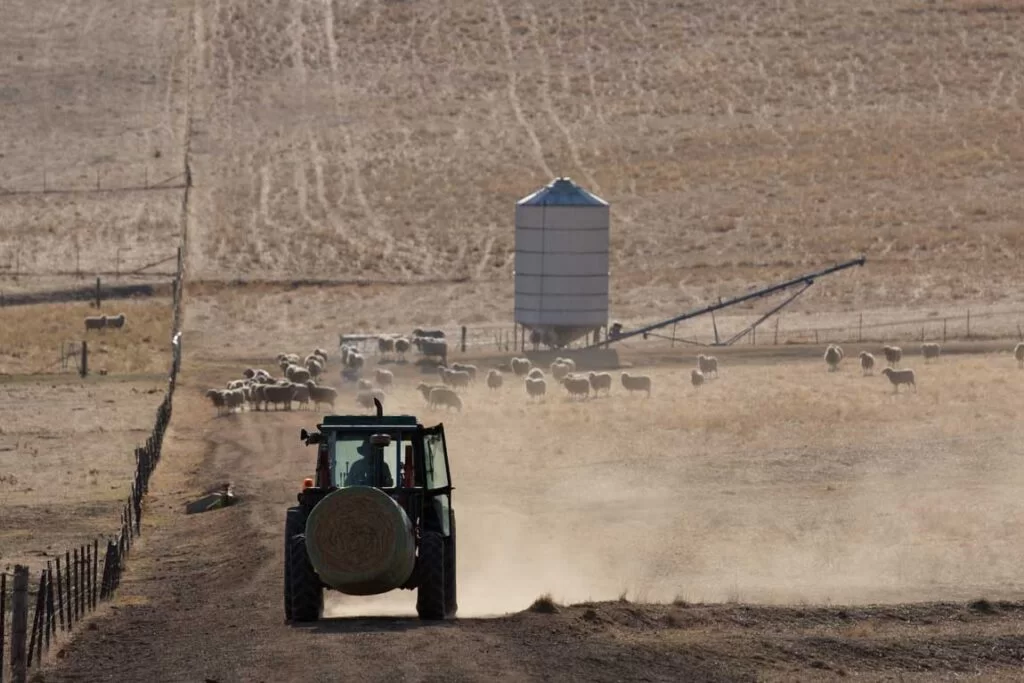Agreed to by the VFF Policy Council
Meeting 177
7 September 2022
Policy Statement
General Principles
1.The VFF strongly believes that farmers are committed to providing the highest standards of welfare by prioritising the health, welfare, and safety of livestock in their care.
2.The VFF recognises that safeguarding animal welfare is key to maintaining animal health and production outcomes and supports Victoria’s world-leading animal welfare regulations. The development of legislation and regulations should provide adequate protections to animals, while reinforcing the importance of animal agriculture to the broader community.
3.The VFF believes that Victorian farmers lead innovations in animal agriculture that benefit animal welfare and enable international market access using the most recent peer-reviewed, scientific evidence.
4.There must be a clear distinction between animal welfare regulation in primary production species, companion animals and pest species. The VFF supports the objective separation of animal welfare regulation by its respective industry, noting that each animal species has unique requirements, guidelines and regulations which may not be applicable nor practicable when applied to the other.
5.The VFF supports the role of science in the formation of animal welfare legislation, regulation, and guidelines, but only where it is objective and practicable. The VFF believes that the Five Domains Model is an appropriate scientific Model upon which to construct animal welfare legislation, regulation and guidelines. Where there are practical or economic difficulties in executing standards, government support for industry is necessary to achieve change.
6.The VFF supports animal welfare legislation underpinned by education and extension in the primary animal production sector. This legislation must be communicated clearly to all stakeholders, including the non-farming community, whose perception of animal agriculture is important to farmers.
7. The VFF opposes co-regulation in animal welfare legislation, with the understanding that primary production animal sectors are inherently different from other primary and animal sectors, which are accompanied by their own nationally agreed Standards and Guidelines.
Animal sentience
8.The VFF believes that animals are living beings that can feel and perceive the world around them. Legislation and regulation in place to safeguard animal welfare must be designed based on peer-reviewed evidence informing the scientific understanding of sentience. TheVFF firmly opposes the use and definition of animal sentience outside the current definition that is backed by peer-reviewed, scientific evidence.
Permissions, restrictions, and controlled procedures
9.The VFF opposes restrictions of husbandry practices to veterinarian-only procedures, understanding that Victorian producers deliver the best practice approach to regularly delivered on-farm practices.10.The VFF rejects the notion of animal welfare and production training and licencing above current lawful compliance, noting that Victorian farmers regularly seek to improve and deliver best practice in a safe and humane manner.
Pain relief
11.The VFF recognises that farmers voluntarily use pain relief in husbandry procedures in line with agricultural best practice.
12.The VFF opposes the subjection of animals to practices which induce an unnecessary, identified, and uncontested negative affective state under the Five Domains Model.
Consequently, the VFF supports the restriction or prohibition of these practices provided there is appropriate Government assistance and consultation with industry. This must be accompanied by an organised phase-out period to assist industry with adapting to these changes.
Standards of care
13.The VFF supports a standard of care defined as the achievement of a positive affective state under the Five Domains Model.
14.The animal primary industries actively define standards of care under Standards andGuidelines recommended to Government. The VFF supports the continuation of Standards and Guidelines agreed to by the Victorian Government provided farmers are extensively consulted in the process.
15.The VFF acknowledges that a review of current Standards and Guidelines may be required if they no longer maintain the standard of care defined in (13), but this must be based on objective, peer-reviewed scientific evidence.
Compliance and enforcement
16.The VFF believes that a penalty for intentional cruelty is absolutely necessary and supports appropriate, objective penalties for offenders committing these offences. Penalties must be tailored appropriately to the circumstances of the case and the offender, with a focus on education and extension for future compliance, surplus to financial penalty.
17.The VFF supports provisions to cruelty offences where events including extreme weather or natural disaster necessitate a change to animal treatment, to the absolute exclusion of intentional cruelty.
18.The VFF does not support unscheduled, on-farm auditing. Where a minimal issue withanimal welfare is noted, it must lead to a proactive, educative response to ensure continued compliance, as opposed to a reactive approach.
19.The VFF acknowledges the importance of on-farm auditing in ensuring continued quality assurance and compliance with industry standards. However, the VFF supports the harmonisation of on-farm auditing services to reduce auditing burden on farmers.
